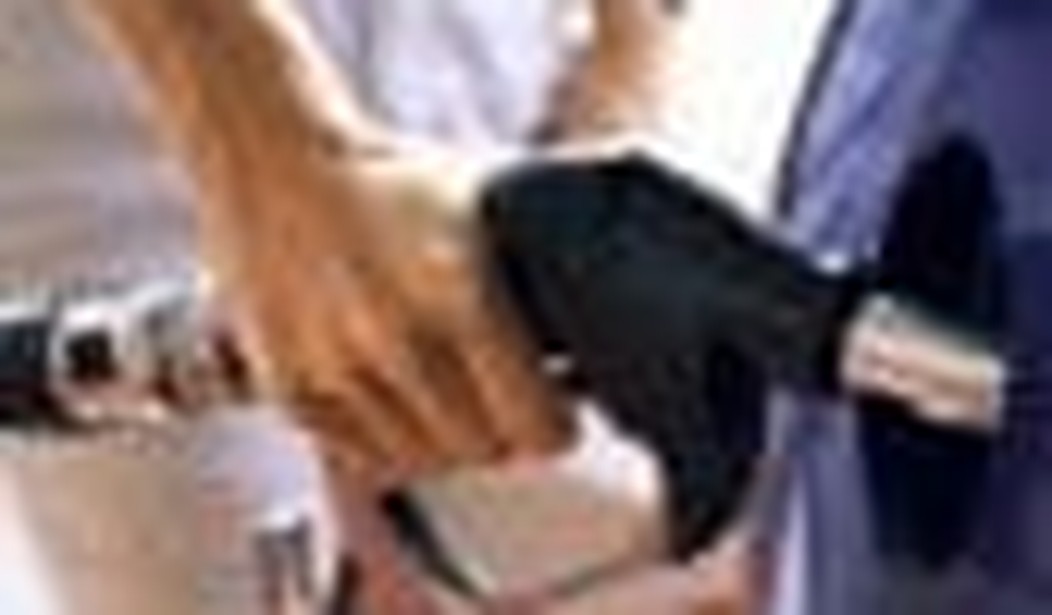John McCain chose April 15 to propose a slew of tax initiatives to commemorate the tax filing deadline. Some were good ideas: a reduction in the corporate tax rate, simplification of the tax code, and reduced federal discretionary spending. But Senator McCain also proposed a holiday from the federal tax on gasoline and diesel, as an economic stimulus. The gas tax is good for the economy, and one of our best policies for fighting terrorism. The tax should not be abolished; it should be increased.
Taxes drive a wedge between the price a buyer pays for something and the price a seller receives. When taxes are high, buyers have to be willing to pay more and sellers to accept less, or there won’t be any trade. Normally, that means fewer buyers and sellers, since the bigger the wedge, the more parties who will be unable to find what they are looking for at an acceptable price. In the labor market, the price is wages and salaries, and the income tax puts a big gap between the wages and salaries people actually receive after tax and what companies have to give up to hire them. This makes it more expensive to hire people and less rewarding to work, so less hiring and less working will happen. This wedge effect is the real waste created by income taxation. Higher income taxes mean giving up wealth that neither producers, consumers, nor the government ever get, because it was never created in the first place.
Unlike labor, some markets trade in goods that harm third parties, and taxes can fix the problem. For example, when a bar sells liquor to its customers, the owner receives a profit, the customers enjoy the benefits of intoxication, and innocent motorists bear the risk of being struck by a drunk driver. Alcohol taxes make the price of booze reflect these otherwise hidden social costs, known to economists as “negative externalities” because they negatively affect parties external to the transaction. The tax forces drinkers to make decisions based on drinking’s real cost; it also has the happy side effect of raising revenue the government might otherwise seek elsewhere.
Gasoline consumption, like drinking, imposes a cost on other people. Per mile, we only pay the cost of gasoline, gasoline taxes, and vehicle mileage. But driving also emits smog and greenhouse gases, wears out roads and bridges, and requires hiring traffic police. More vehicles on the road cause more collisions and more traffic jams. More driving increases the price a barrel of oil fetches on the world market, enriching oil autocracies and terrorist groups, and requiring us to spend more on national security. These are all negative externalities, and we drive more than we should because drivers don’t pay for these costs by the mile.
For these reasons, Gregory Mankiw, George W. Bush’s former chief economic adviser and Harvard economist, started the Pigou Club, an informal group of economists who advocate a high tax on all carbon emissions. The group is named after Arthur Pigou, the English economist who first described externalities. Some governments are experimenting with building Pigouvian charges into tolls, so drivers pay the cost of traffic. The city of London charges a steep fee to drivers who enter the city center during business hours. San Diego is building highways with tolls that rise and fall automatically, to charge more when more vehicles are on the road. But the simplest way to fix the problem is a system already in place: the gasoline tax.
A bold president would raise the gas tax, not abolish it. The gasoline tax we already have is meant to fund transportation maintenance; these transportation funds are already mismanaged and inadequate to repair what we have, as the Twin Cities bridge collapse showed. The costs of fighting terrorism and climate change are not reflected in the gas tax at all. The sad irony of McCain’s proposal is that besides worsening these problems, abolishing the gas tax may merely raise the cost of gas in the long run. Once the tax is repealed, it would be extremely difficult to reinstate it on Labor Day, two months before the election; it might be dead for good. In the short run it’s very difficult to change personal driving habits. But in the long run, high prices encourage people to invest in vehicles with high fuel economy and housing with shorter commutes. Lower prices now mean higher demand later; and higher demand means higher gas prices.
Even if he thinks a gas tax holiday is worth the short-term benefits economically, McCain is staking his candidacy on victory in Iraq. A tax break can only help the governments of Iran and Saudi Arabia, and the Shiite and Sunni militants they finance in Iraq. Drivers don’t see the cost to our security and our troops when they fill up at the pump, a policy that must change. We can harness the power of the market to break our dependence on fossil fuel dictators. No blood for oil, indeed.
Nic Duquette is a writer living in Ohio.









Join the conversation as a VIP Member